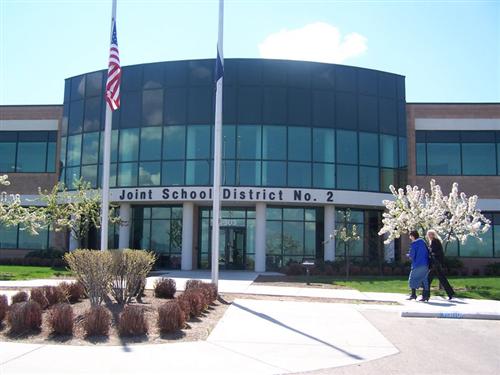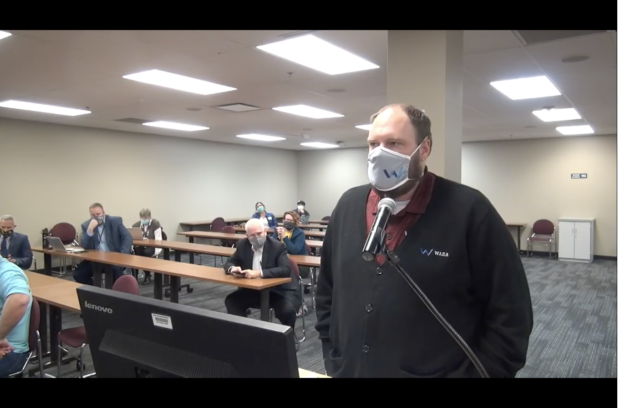
On the second day of an October teacher “sickout” in the West Ada district, five parents sued the teachers union, alleging the sickout was basically a strike, and that teacher strikes are illegal in Idaho.
But are they? That question might not be so cut and dry.
In an October hearing, Ada County District Judge Michael J. Reardon described the matter as “unsettled.” He is scheduled to hold a hearing in the case Monday, where he could consider a motion to dismiss, and decide whether parents can proceed with the lawsuit anonymously.

The lawsuit, filed by a man named Roy Ratliff and four anonymous parents, leans heavily on an Idaho Supreme Court decision dealing with a 1975 Oneida County teacher strike.
Ratliff’s lawyers argue that the Supreme Court decided in that case that teacher strikes are illegal. A sickout is a type of strike, they reason, so that’s illegal, too. They asked Reardon to affirm that position, declaring the sickout an illegal strike, and enjoining union members so they can’t continue with the sickout. (The sickout actually ended the day after the lawsuit was filed).
In that initial hearing, Reardon told plaintiffs that he doesn’t agree with their interpretation of the Oneida case.
“I take it from the way that you have framed the argument that you believe Oneida stands for the principle that under no circumstances are teachers ever allowed to strike,” Ratliff said. “I don’t read it that way. And I’m not sure the majority in the case actually meant it that way.”
In the Oneida case, justices ruled that a lower court judge erred when he issued an automatic injunction against teachers threatening to strike, without first considering testimony. The assumption, Supreme Court justice Allan Shepard wrote, was that the lower court judge had “concluded that a strike by teachers is illegal in Idaho.”
But the Supreme Court justices ruled on the issue of the injunction “assuming without deciding that (the lower court judge) was correct” about strikes, the opinion says.
“Doesn’t that language kind of vitiate your entire argument that there was a decision that strikes by teachers were illegal?” Reardon asked Ratliff’s lawyer, Daniel Suhr.
West Ada Education Association lawyers drew the distinction between a “right to strike,” and strikes being illegal. The right to strike means that teachers can’t be fired for striking, said attorney James Piotrowski. The Supreme Court concluded that neither state or federal law grant this right to teachers, Piotrowksi said.
But he also pointed to the “assuming without deciding” sentence that Reardon highlighted in the Oneida case.
“What the court clearly said is: ‘We don’t decide the issue of whether strikes by Idaho teachers are actually prohibited by law,'” he said. “There’s no protection for striking teachers, but that doesn’t mean that teachers going on strike is illegal in the sense that it is prohibited.”
Reardon declined to issue an injunction in that Oct. 26 hearing. And he made it clear that if the sickout issue is resolved, he’s not going to give an advisory opinion on the legality of teacher strikes.
“I’m not simply going to issue a judicial fiat about a matter that I view as unsettled in the state,” he said.
In the weeks since the last hearing, the teachers union has asked Reardon to dismiss the case, arguing that the parents don’t have legal standing to sue the union. Lawyers also say the union was not directly responsible for school closures, which the district decided to implement after individual teachers called in sick. Eric Thies, union president, submitted an affidavit saying that he didn’t come up with the idea of a sickout, but instead supported teachers who planned to call in sick.
The parents’ lawyers disagree.
“After proclaiming to any media who would listen that the (union) was organizing a sickout, the defendant has experienced a streak of modesty about its role in the entire affair,” lawyers said in their opposition to the motion to dismiss, citing EdNews and other media outlets that covered the sickouts.
Follow EdNews on Monday for more updates on the suit.
